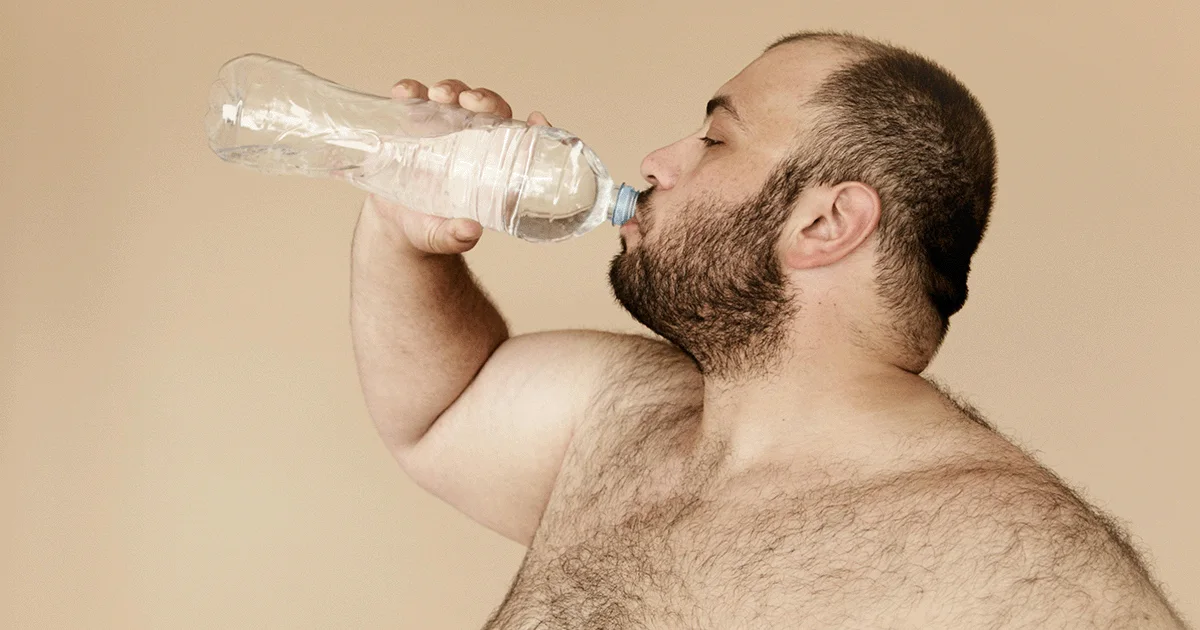Key takeaways
Pineapple is a tropical fruit that contains many essential nutrients for human health, including calcium, fiber, vitamin C, and more.
Pineapple benefits for men may include aiding digestion, boosting the immune system, regulating blood flow, and reducing inflammation.
While there aren’t any scientifically proven benefits of pineapple sexually, the vitamins and minerals the fruit contains have been found to help improve or support overall sexual function.
Here's what we'll cover
Key takeaways
Pineapple is a tropical fruit that contains many essential nutrients for human health, including calcium, fiber, vitamin C, and more.
Pineapple benefits for men may include aiding digestion, boosting the immune system, regulating blood flow, and reducing inflammation.
While there aren’t any scientifically proven benefits of pineapple sexually, the vitamins and minerals the fruit contains have been found to help improve or support overall sexual function.
Pineapples are pretty cool plants. Beyond being delicious (and the key ingredient for an amazing tropical cocktail), these spiky fruits also have a lot to offer from a health perspective—and there may be benefits of pineapple, sexually speaking, too.
Pineapples are rich in nutrients that help with digestion, promote heart health, boost the immune system, and more. Some of these nutrients, such as bromelain and manganese, are also important for supporting sexual health, which might have you wondering if there are pineapple benefits for men, in particular. So, let’s take a closer look and see what this tropical fruit has to offer—both inside and outside the bedroom.
A look into pineapple’s health benefits
Pineapple is a flavorful fruit native to South America that contains various vitamins and minerals essential to overall health. It’s composed of 85% water, plenty of digestion-friendly fiber, and disease- and inflammation-fighting antioxidants.
Pineapple is a good source of vitamin C, which can help heal wounds, lower blood pressure, and fight off infections, and manganese, which is important for regulating heart rate, blood sugar, and blood flow. (Though keep in mind that pineapple is not a low-sugar food!) The tropical fruit also contains bromelain, an enzyme that is thought to reduce inflammation, facilitate wound healing, and possibly contain anti-cancer properties. Of course, further evidence is needed before these benefits can be definitively stated.
Fresh pineapple is the best way to benefit from all of the nutrients pineapple possesses because many beneficial nutrients, such as vitamin C, can get lost during processing (particularly during any steps that involve heat). If fresh pineapple isn’t available, you can get a few of the health benefits from drinking pineapple juice, but keep in mind many nutrients may have been lost depending on the processing style. Furthermore, juice products tend to be lower in fiber and higher in sugar than the whole fruit.
Pineapple benefits for men
There are many foods out there believed to be aphrodisiacs that enhance sex drive and boost performance in the bedroom. So, where does pineapple fall on the list? Though there’s not enough research yet to say whether there are pineapple benefits for men sexually, the fruit has colloquially been thought of as having sexual benefits. The fruit also contains nutrients and other bioactive compounds that can support sexual function and may even help with issues such as erectile dysfunction (ED) as part of an overall healthy lifestyle and balanced diet.
Improves blood flow
One potential pineapple benefit for men is regulating blood pressure due to the presence of copper. In some studies, copper has been shown to have a beneficial effect on important hormones that help regulate blood pressure. As mentioned, pineapple also contains vitamin C, which facilitates vasodilation, helping relax blood vessels and encourage blood flow throughout the body. Adequate blood flow is critical to getting an erection, and high blood pressure is a known contributor to ED. Though pineapple on its own won’t directly treat high blood pressure (or ED caused by high blood pressure), in theory, eating foods like pineapple that support overall vascular health could be beneficial for erectile health and function.
Reduces inflammation
Inflammation is a normal response to injury or infection; it’s your body’s way of protecting itself by sending immune cells to affected areas to promote healing and/or defend against further trauma. But chronic inflammation—such as that caused by chronic stress, poor diet, or autoimmune conditions—can damage the lining of blood vessels. Over time, ongoing inflammation can eventually lead to more serious health problems like heart disease, diabetes, chronic pain, sexual dysfunction, and more.
Nutrients found in pineapple, such as vitamin C and bromelain, have been shown to reduce inflammation. Bromelain has even been used in medical settings to help with wound healing, pain and swelling from arthritis, and nasal swelling associated with sinusitis. The anti-inflammatory properties of bromelain are important because chronic inflammation over time may contribute to ED. More research is needed to determine if the anti-inflammatory effects of the fruit are actually beneficial for sexual dysfunction in humans. That being said, incorporating pineapple into your diet likely won’t hurt—and certainly could help.
Improves sperm health
Whether you heard it in a movie or through the grapevine (er, pineapple vine?), odds are you’ve wondered or even Googled, “Does pineapple make your sperm taste better?” While the rumor that pineapple can make semen sweeter seems to perpetually circulate, it’s just that: a rumor. Unfortunately, there isn’t much science to back up the supposed pineapple benefit for men, and results may vary.
That being said, the fruit may offer other perks in the sperm department. Manganese has been found to affect sperm quality and motility (how well sperm swim) when consumed in moderate amounts. Plus, vitamin C may also be beneficial for sperm count and motility—two qualities important for conception if that’s the goal.
May boost testosterone levels
Research thus far has been limited to animal studies, but some early evidence suggests that certain compounds in pineapple could positively impact the production of sex hormones, specifically testosterone.
Bromelain, which is unique to fruits like pineapple, kiwi, and bananas (among others), has been shown to stimulate testosterone production in mice. Testosterone is a hormone critical to sex drive and erectile function; low T has been found to cause ED and lower libido in some men. Again, larger studies on human populations are needed, but animal research hints that the nutrients found in pineapple could have benefits for regulating sex hormones.
Are there any health risks of pineapple?
Have you ever noticed burning or tingling in your mouth after scarfing down some pineapple? That’s likely because the fruit is highly acidic and full of enzymes (again, bromelain) that break down proteins, including the ones in your mouth. While this reaction tends to be mild for most people, it can worsen symptoms for those with oral sensitivities or conditions like acid reflux.
Pineapples are generally safe to eat, and allergies to the fruit are relatively uncommon. But like with any food, some people are, in fact, allergic to the ingredient and may be more likely to be allergic if they already have an allergy to other tropical fruits (e.g. banana, kiwi). Experiencing symptoms such as stomach pain, rash, trouble breathing, vomiting, or diarrhea post-pineapple consumption should warrant immediate medical attention.
It’s also worth noting that pineapple can interact with certain medications—and that’s largely due to good ol’ bromelain. The enzyme is known to raise the risk of or cause unwanted interactions (e.g. increasing the absorption rate of medications) in the body when combined with alcohol, antibiotics, blood thinners, and sedatives. If you’re taking any of these medications, speak to a healthcare provider first to see if it’s safe or not to include pineapple in your diet.
So, is eating pineapple for its sexual benefits worth it?
There may be some health benefits of pineapple sexually, but more research is needed before we can say for certain. However, since pineapple can benefit aspects of overall health when eaten in moderation, it’s reasonable to theorize that some of these perks could trickle down to the sexual health realm, too.
To reap the benefits pineapple has to offer, consider eating it as a post-dinner sweet treat or in a smoothie. Pineapple juice also contains many of the same essential nutrients as the whole fruit and can be a good option if fresh fruit isn’t easily accessible. Again, be mindful that pineapple juice may contain more sugar (as well as less fiber than the whole fruit). Check the nutrition label to ensure you’re buying products without added sugars and remember all good things in moderation.
Bottom line
Pineapple is a popular tropical fruit that is a good source of antioxidants and other essential nutrients, including fiber, calcium, manganese, vitamin C, and bromelain. Along with supporting digestive and heart health, some other pineapple benefits for men may include better blood flow, reduced inflammation, and improved sperm health. While there’s no direct evidence proving pineapple can give you a boost in the bedroom, the fruit contains many nutrients that support erectile function and overall sexual health.
However, if you’re dealing with ED, low sex drive, or another type of sexual dysfunction, eating a bunch of pineapple chunks probably isn’t going to do much (except taste really good). If you’re experiencing symptoms of ED, the first step is to speak with a healthcare provider who, depending on the cause, may recommend a prescription medication, which is often used as a first-line treatment, such as Viagra (sildenafil) or Cialis (tadalafil).
DISCLAIMER
If you have any medical questions or concerns, please talk to your healthcare provider. The articles on Health Guide are underpinned by peer-reviewed research and information drawn from medical societies and governmental agencies. However, they are not a substitute for professional medical advice, diagnosis, or treatment.
Viagra Important Safety Information: Read more about serious warnings and safety info.
Cialis Important Safety Information: Read more about serious warnings and safety info.
References
Abraham, R., Joshi, J., & Abdullah, S. (2023). A comprehensive review of pineapple processing and its by-product valorization in India. Food Chemistry Advances, 3, 100416. doi: 10.1016/j.focha.2023.100416. Retrieved from https://www.sciencedirect.com/science/article/pii/S2772753X2300237X
Chakraborty, A. J., Mitra, S., Tallei, T. E., et al. (2024). Bromelain a Potential Bioactive Compound: A Comprehensive Overview from a Pharmacological Perspective. Life (Basel), 11(4), 317. doi: 10.3390/life11040317. Retrieved from https://pmc.ncbi.nlm.nih.gov/articles/PMC8067380/
Dreher, M. L. (2018). Whole Fruits and Fruit Fiber Emerging Health Effects. Nutrients, 10(12), 1833. doi: 10.3390/nu10121833. Retrieved from https://www.ncbi.nlm.nih.gov/pmc/articles/PMC6315720/
Furman, D., Campisi, J., Verdin, E., et al. (2019). Chronic inflammation in the etiology of disease across the life span. Nature Medicine, 25, 1822-1832. Retrieved from https://www.nature.com/articles/s41591-019-0675-0
Hamidian, S., Talebi, A. R., Fesahat, F., et al. (2020). The effect of vitamin C on the gene expression profile of sperm protamines in the male partners of couples with recurrent pregnancy loss: A randomized clinical trial. Clinical and Experimental Reproductive Medicine, 47(1), 68-76. doi: 10.5653/cerm.2019.03188. Retrieved from https://pmc.ncbi.nlm.nih.gov/articles/PMC7127905/
Julanon, N., Thiravetyan, B., Unhapipatpong, C., et al. (2023). Not Just a Banana: The Extent of Fruit Cross-Reactivity and Reaction Severity in Adults with Banana Allergy. Foods, 12(13), 2456. doi: 10.3390/foods12132456. Retrieved from https://www.mdpi.com/2304-8158/12/13/2456
Khazaeel, K., Rad, O. R., Jamshidian, J., et al. (2022). Effect of bromelain on sperm quality, testicular oxidative stress and expression of oestrogen receptors in bisphenol-A treated male mice. Andrologia, 54, e14584. doi: 10.1111/and.14584. Retrieved from https://onlinelibrary.wiley.com/doi/10.1111/and.14584
Knox, S., Lang, D., & Hoyt, A. (2019). The many flavors of pineapple reactions. Annals of Allergy, Asthma & Immunology, 123(5), 519-521. Retrieved from https://www.annallergy.org/article/S1081-1206(19)30577-0/abstract
Liu, C., Gao, Y., Ji, J., et al. (2023). Association between inflammatory indexes and erectile dysfunction in U.S. adults: National Health and Nutrition Examination Survey 2001-2004. Sexual Medicine, 11(4), qfad045. doi: 10.1093/sexmed/qfad045. Retrieved from https://pmc.ncbi.nlm.nih.gov/articles/PMC10413424/
Lou, I. X., Chen, J., Ali, K., et al. (2023). Relationship Between Hypertension, Antihypertensive Drugs and Sexual Dysfunction in Men and Women: A Literature Review. Vascular Health and Risk Management, 19, 691-705. doi: 10.2147/VHRM.S439334. Retrieved from https://pmc.ncbi.nlm.nih.gov/articles/PMC10629452/
May, J. M. & Harrison, F. E. (2013). Role of vitamin C in the function of the vascular endothelium. Antioxidants & Redox Signaling, 19(17). doi: 10.1089/ars.2013.5205. Retrieved from https://pmc.ncbi.nlm.nih.gov/articles/PMC3869438/
Rathnavelu, V., Alitheen, N. B., Sohila, S., et al. (2016). Potential role of bromelain in clinical and therapeutic applications. Biomedical Reports, 5(3), 283-288. doi: 10.3892/br.2016.720. Retrieved from https://pmc.ncbi.nlm.nih.gov/articles/PMC4998156/
Santos, D. I., Martins, C. F., Amaral, R. A., et al. (2021). Pineapple (Ananas comosus L.) By-Products Valorization: Novel Bio Ingredients for Functional Foods. Molecules, 26(11), 3216. doi: 10.3390/molecules26113216. Retrieved from https://pmc.ncbi.nlm.nih.gov/articles/PMC8198275/#sec1-molecules-26-03216
Schardein, J. & Hotaling, J. (2022). The Impact of Testosterone on Erectile Function. Androgens: Clinical Research and Therapeutics, 3(1). doi: 10.1089/andro.2021.0033. Retrieved from https://www.liebertpub.com/doi/full/10.1089/andro.2021.0033
Skoracka, K., Eder, P., Łykowska-Szuber, L., et al. (2020). Diet and Nutritional Factors in Male (In)fertility-Underestimated Factors. Journal of Clinical Medicine, 9(5), 1400. doi: 10.3390/jcm9051400. Retrieved from https://pmc.ncbi.nlm.nih.gov/articles/PMC7291266/
Thanompongchart, P., Pintana, P., & Tippayawong, N. (2022). Thermal performance enhancement in hot air and solar drying of pineapple slices with ultrasonic vibration. Case Studies in Thermal Engineering, 37, 102296. doi: 10.1016/j.csite.2022.102296. Retrieved from https://www.sciencedirect.com/science/article/pii/S2214157X22005391












